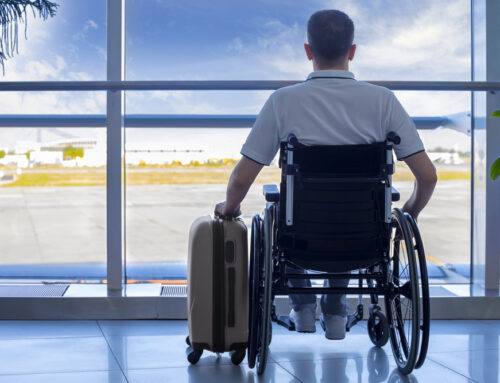Top Ways Traveling Delivers Mental Health Benefits

How Traveling Can Benefit Your Mental Health

For most of us, the thought of traveling can give mixed emotions. On one hand, traveling to places that we want to visit isn’t necessarily cheap and the thought of the unknown can sometimes fill us with unease. On the other hand, travel can be a fun and enjoyable experience that offers plenty of opportunities for personal growth. Here are just some of the mental health benefits that come with traveling to new destinations.
Thanks to several recent studies, we know that travel has benefits for our mental health that go beyond simply distracting us from everyday realities. Exposure to new experiences associated with travel can stimulate our brain into creating new connections that could improve and maintain cognitive function. This same process may even be key to bypassing dysfunctional connections created by trauma and substance misuse.
Below are some of the ways travel may improve your mental health. If you have a serious psychiatric issue, please see your physician before traveling and do your due diligence in researching your potential destinations. If you’re in New England and need help with a substance use disorder, make sure to check out this resource on drug rehabs in Boston.
1. Travel can help improve empathy
Empathy is an often overlooked quality that’s present in mentally healthy people. Frequent travelers often develop listening skills and empathy that they might not otherwise learn back home. Even if you’re just traveling to a different state, you might find that people who make a life for themselves there have perspectives that might be completely different from your own. Encountering other people with different cultures, views, and opinions can teach us plenty of things about tolerance and understanding other points of view.
Hearing about other people’s experiences and seeing what they’ve seen for yourself can be quite a transformative experience and gives one a much deeper understanding than they would otherwise get by just reading about them and seeing a few videos and pictures. If you want to become a truly more empathetic and complete person, regular travel should be on your agenda.
2. It can allow us to disconnect from the daily grind

It can be difficult to truly assess where we are in life if we don’t disconnect from our routines. Daily life often becomes too busy for us to get a true handle on what we’re feeling or what we might need to do to grow as people. An often-used metaphor to illustrate this is the “boiling frog”, where frogs jump out of pots of already-boiling water but will stay in if you put them in lukewarm water and gradually ramp up the heat until it boils.
While the boiling frog fable is not true in a literal sense, there is truth to the idea that most of us do not respond rationally when faced with slow changes. Going on regular vacations can be key to helping us understand the current state of our personal and professional lives, including how they are affecting our mental health. This can allow us to make better decisions in these areas, preventing potentially serious consequences later on.
3.) New experiences help the brain create fresh connections
Travel and other novel experiences create new connections in our brains, which can be vital in preventing premature brain aging. The act of traveling has also long been associated with better creativity, and it might be key to helping us get out of the ruts that we occasionally experience in our day-to-day lives.
This stimulation of brain growth can be vital for people with mental health conditions that alter their normal brain connections. People with post-traumatic stress and substance use disorder, for instance, might benefit from the boost in connections that are made when traveling, particularly to natural sites away from urban areas.
4.) The novelty can spark inspiration in our minds
Traveling is a good way to learn new things that spark our interest. Frequent travelers often come home with new lifelong hobbies and interests that can serve to keep their brains stimulated and healthy. Having a variety of hobbies can serve to maintain your brain’s cognitive health as you age, so you may want to consider making time for new hobbies when you’re not currently going places.
5.) It may boost independence and self-esteem

Going to new places alone or with a small intimate group often requires plenty of planning and problem-solving. You will likely have to face different challenges, big and small on your own. This can be important in helping one become better connected with themselves and their own mental state
These actions can, over time, build your independence and self-esteem, which can be potentially offset symptoms associated with anxiety disorders and depression. Better self-esteem can also help one make friends and take on leadership roles, both of which can be important in our personal and professional lives.
It bears mentioning that traveling is not a substitute for seeing a therapist or practicing other critical forms of self-care. However, given how accessible it now is, it may be one of the most important things that we do for ourselves, especially as far as our mental health is concerned.




